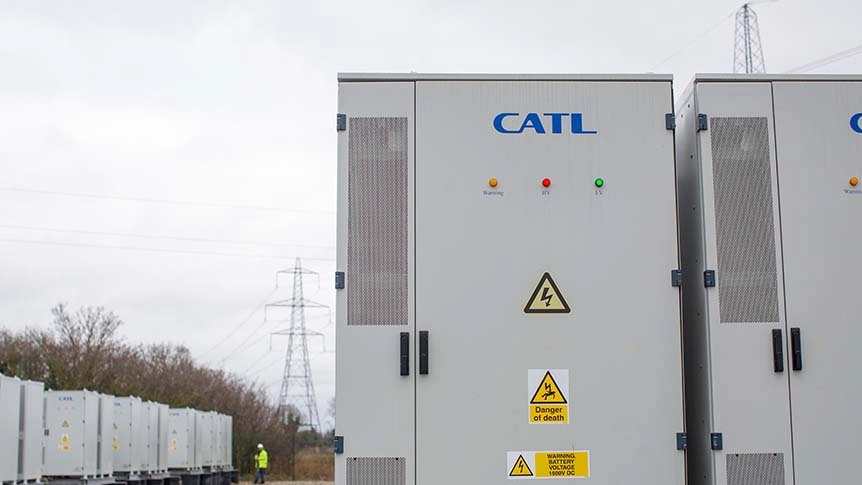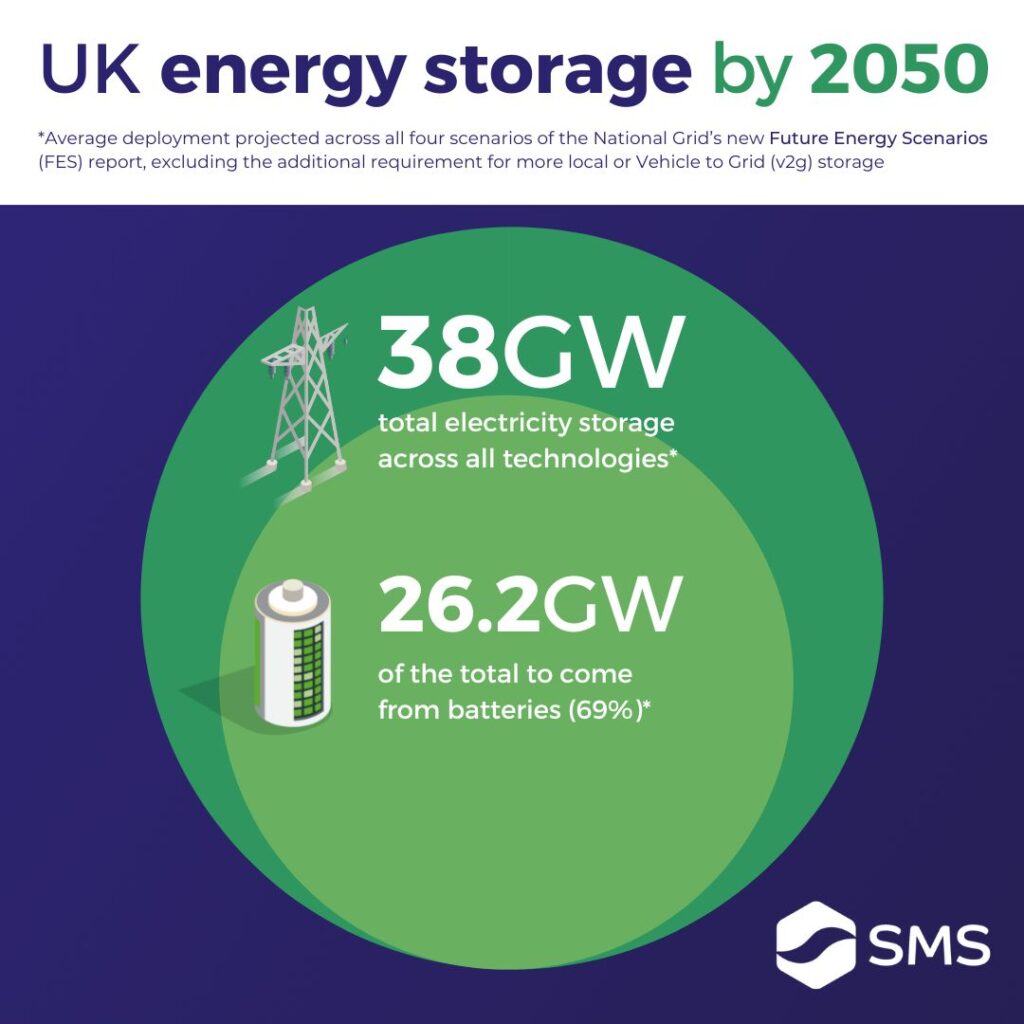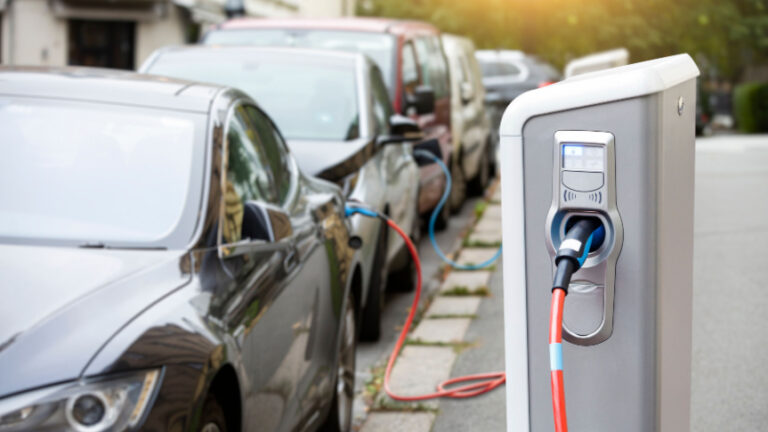Battery energy storage continues rise as critical net zero technology

The UK will have more than 38GW* of energy storage installed by 2050, according to the average deployment projected across all four scenarios of the National Grid’s new Future Energy Scenarios (FES) report.
The report is published by National Grid ESO each year and outlines four different possible trajectories for the future of Britain’s energy system to the year 2050 (in line with the UK’s net zero 2050 commitment).
Whilst the report looks at potential developments across the entirety of UK energy sector, in this blog we take a more specific look at the report’s projections for the UK energy storage market.
With our current 760MW pipeline of grid-scale battery energy storage (BESS) projects planned to be delivered by the end of 2026, including 90MW that is already energised and a further 150MW under construction – SMS is set to play a market leading role in delivering Britain’s energy storage needs (c.10% current market share of UK BESS projects).
*figure excluding the additional requirement for more local or Vehicle to Grid (V2G) storage.
How storage deployments average over the four scenarios
The FES report is split into four potential trajectories to how the UK economy might reach net zero emissions by 2050. These are:
- Falling Short
- System Transformation
- Consumer Transformation
- Leading the Way
To assess how the energy storage market is expected to fare in particular (covering all storage technologies including batteries, pumped hydro, air-based solutions, etc), we have calculated what the overall average deployment is predicted to be in both 2030 and 2050 respectively (considering estimations across each of the four scenarios).
SMS uses this average total each year to provide what we consider to be the most reliable gauge of long-term market expectations for the energy storage industry in which we operate. For 2022, our FES calculations compared to 2021 indicate that:
– The total UK energy storage requirement by 2030 (excluding V2G) increased by 7.2GW (from 2021) to 18.7GW, of which 14.1GW is expected to come from batteries
– The total UK energy storage requirement by 2050 (excluding V2G) increased by 5.1GW (from 2021) to 38W, of which 26.2GW is expected to come from batteries.

Energy storage market growth
The main conclusion to be drawn from the above is that National Grid ESO has considerably increased its forecast for annual electricity demand by both 2030 and 2050 in all scenarios, and correspondingly has also significantly increased its forecast for the expected growth of the UK’s energy storage market over this period.
This provides extremely positive news for market participants, like SMS, on the future growth of our industry, with the country’s electricity system operator acknowledging the increasingly critical role of battery energy storage to ensure a more stable, resilient, and lower carbon power network.
In our net zero future, both grid scale and behind-the-meter batteries will ensure peak demand can be met reliably as an increasing proportion of the UK’s electricity is generated from weather dependent renewables.
Demand-side flexibility
National Grid ESO expects battery storage, compared to other energy storage technologies, to make up the largest share of storage power capacity in all scenarios by 2050 in order to help shift demand within the day, and managing network constraints as battery costs fall.
The report has also continued to forecast growing need for greater demand-side flexibility to support the transition to net zero. Demand-side flexibility generally refers to how end-consumers actively contribute to the flexibility of the grid, which is largely attributed to distributed flexible assets such as electric vehicle charge points and behind-the-meter battery storage.
At SMS, alongside BESS, we’re also an increasingly active participant in enabling and growing these markets through our investment in carbon reduction (CaRe) assets such as smart meters (a key facilitator of flexibility) and our recently launched EV charging and solar + storage solutions.
This is in addition to our FlexiGrid software, which helps asset owners, system operators and energy suppliers with greater local control of these distributed technologies across homes and businesses.
Make an enquiry
Interested in our energy storage solutions? Get in touch with one of our expert team today.


